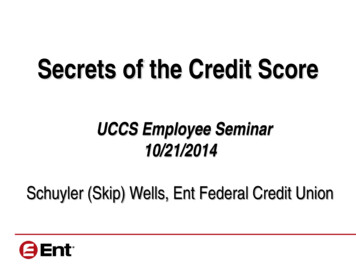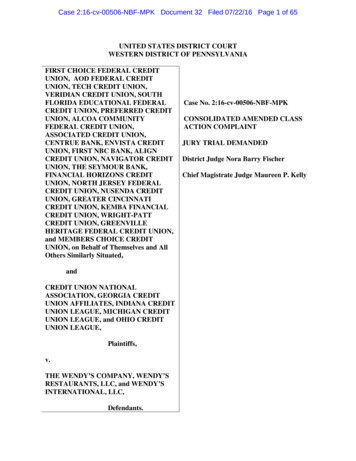
Transcription
Volume 5 - 2016Copyright BHCR d/b/a Pioneer Credit CounselingAll rights reserved. No part of these materials and/or contents may be copied, altered, electronicallytransferred or reproduced in whole or in part in any form whatsoever without the prior written approvalfrom any managing member of BHCR d/b/a Pioneer Credit Counseling. BHCR d/b/a Pioneer CreditCounseling will allow for this material to be used for educational purposes. Thank you to Laca Ossenfortand all others who participated in the development and creation of this Life Skills Workbook.Disclosure Statement: The author of the “Simplified Guide to Financial Life Skills” is providing generalinformation, not legal or accounting advice. These materials have been developed to educate, teach andhelp individuals understand the basics of budgeting, credit and debt.Sources: The author has compiled much of this information from personal experience and public domain.www.pioneercredit.com
WELCOME TO THE SIMPLIFIED GUIDE TO FINANCIAL LIFESKILLSONLYDear Bankruptcy Participant:Please find enclosed the “Course Curriculum” for your Post Bankruptcy Education requirement. You will need to review and study this material for1 to 2 hours prior to your scheduled Telephone Counseling Session. If your Telephone Counseling Session is going to be conducted as a conferencecall, you will need to call the conference line about 5 minutes prior to the start of the session. If your call is dropped at any time and you are unsuccessful at resuming the call, you will be required to start this course from the beginning at a later date. Failure to complete this course could jeopardize your bankruptcy filing as well. At the time you call in, you will be required to verify personal information that is listed on your personalaccount through Pioneer Credit Counseling. Please allow up to 2 hours for your counseling session. Prior to class, you will be able to submit youranswers of the Final Test by faxing to 605-348-8537 or submitting on-line at www.pioneercredit.com. You may also call us to verbally give youranswers prior to scheduling your conference class. If you have any questions prior to your session, please do not hesitate to call 1-866-210-3590.IENTSTelephone Conference InformationDate Scheduled: Case # Account # Time Scheduled:Conference Telephone number: Access Code: (Enter when prompted to be placed in correct session)(Call 1-866-210-3590 to schedule class and to get the conference number & access code)Below you will find our bankruptcy disclosures. Review them, and then initial the required statement on your test answer sheetlocated on page 32.FORBANKRUPTCYCLFee WaiverBlack Hills Children’s Ranch Inc. d/b/a Pioneer Credit Counseling (PCC), agrees to reduce or waive the course fee for a consumer or debtor student which hasincome less than 150 percent of the poverty guidelines last published by the United States Department of Health and Human Services (DHHS) Pioneer CreditCounseling Bankruptcy Disclosures1. Client understands and agrees they are receiving a personal financial management course (POST) through Black Hills Children's Ranch, Inc D/B/A PioneerCredit Counseling (PCC), 1644 Concourse Drive Rapid City, South Dakota 57703, a 501(c) (3) non-profit, bonded, consumer credit counseling and educational agency and client hereby authorizes PCC to receive any information regarding client accounts and/or creditors. This course is offered in bothEnglish and Spanish at no additional charge.2. The fee charged for the personal financial management course will be no greater than the debtors ability to pay and no greater than 50.00 individually.Please send money orders or cashier checks to above address ATTN: ACCOUNTING DEPT. Fee for counseling services are reasonable and services maybe provided without regard to ability to pay the fee. This release agreement for information on my account may be copied and the copy of the signaturemay be deemed to be equivalent to the original and may be used as a duplicate original. Client understands original will be stored in laserfiche.3. The post bankruptcy course is provided through the Internet via an interactive learning module. The course can be accessed 24 hours a day / 7 days aweek and 365 days a year, but contact with live counselors is subject to the business hours of 8am to 8pm (Mountain Standard Time). Upon completion ofthe course, PCC will provide a certificate of course completion promptly. PCC does not pay or receive fee or other consideration for the referrals. It isyour responsibility to ensure that your attorney, legal advisor or court has received your certificate by the date required for your filing.4. Client understands that these fees are nonrefundable once paid, unless the fee is later reduced or waived based on the client’s income and the povertyguidelines published by the United States DHHS. If you decide NOT to file for Bankruptcy or file Chapter 13 and you have purchased a package product,you may contact us for a full refund of your un-used Personal Financial Management Course fee. To arrange for a refund please send a written request tothe address mentioned above in number one, Attention: Refunds.5. PCC will act upon the information received by client in clients' best interest. Client understands that PCC is in no way offering legal advice. PCC will usediscretion when disclosing any information or amount of income, living expenses and debt as necessary.6. Client understands that PCC is a nonprofit agency and receives support from counseling fees charged to clients but most of our funding comes from voluntary contributions made by creditors. Creditors help PCC with voluntary contributions so that PCC is able to continue the pre-bankruptcy counselingprograms and post financial management instructional programs.7. Client understands PCC is a non-profit third party administrator and is not representing itself as a loan company or insurance company. Client also understands we are not giving any legal advice nor are we attorneys. Client also understands that no promise, warranty, or guarantee has or will be made on thepart of PCC to clear client of any debts or make client payments on client's behalf. Client understands that by filing bankruptcy or enrolling in a DebtManagement Plan, that the client's credit report may reflect a consumer credit counseling status or that the client has filed bankruptcy and may cause anegative effect on client's credit report for up to 10 years. Client understands that they should consult an attorney for any information regarding bankruptcy. Client understands that PCC cannot repair or prevent any ratings that may appear on this credit report past, present, or future. Client hereby authorizesPCC to obtain clients' credit report solely for the purpose of the pre-bankruptcy counseling session. Client understands this will appear as a soft inquiryon their credit report.8. Client understands by paying the post financial management instructional course PCC will make available to them the following benefits: on-going consultations with Certified Counselors for review of debts, educational counseling pertaining to basic credit and budgeting.9. Client understands that PCC follows the Financial Counseling Association of America (FCAA) guidelines for certification of Counselors.10. Nothing herein shall apply to actions or claims under the provisions of the United State Bankruptcy Code, 11 U.S.C. § 101 et seq.11. Client agrees that any dispute between us that cannot be amicably resolved, and all claims or controversies arising out of this agreement, shall be settledsolely and exclusively by binding arbitration in Pennington County, South Dakota, administered by, and under the Commercial Arbitration Rules then prevailing of, the American Arbitration Association (it being expressly acknowledged that I will not participate in any class action lawsuit in connection withany such dispute, claim, or controversy, either as a representative plaintiff or as a member of a putative class), and judgment upon the award rendered bythe arbitrator(s) may be entered in any court of competent jurisdiction. The interpretation of this agreement will be governed by the laws of the State ofSouth Dakota.12. PCC has been approved by the EOUST and all districts in Alabama and North Carolina as a Nonprofit Budget and Credit Counseling Agency and aprovider of a Personal Financial Management Instructional Course. The EOUST has reviewed only the counseling services related to bankruptcy. PCCmay disclose your information to the EOUST upon the EOUST’s request.13. An alternative to bankruptcy is the opportunity to negotiate an alternate payment schedule regarding unsecured debt, such as a Debt Management Plan,which PCC offers.
BHCR, Inc. d/b/a Pioneer Credit Counseling is a provider of bankruptcy educational course in accordance with the Bankruptcy Reformof Act of 2005. These interactive courses fulfill your BAPCPA Credit Education Course requirements. It automatically saves yourprogress so you may leave and come back at any time. This course contains engaging content to give you a rewarding andinformative experience. Learn about budgeting, money management, rebuilding credit and credit rights through your debtoreducation course. If you request expedited or overnight shipping of certificates or materials, these will be charged at the actual costof the service provided, which may include postage, shipping, handling and materials and will be payable at time of service. *PRINTTHESE TERMS/DISCLOSURES: For record keeping purposes, Pioneer Credit Counseling encourages you to print theseTerms/Disclosures.Fee Waiver: Black Hills Children’s Ranch Inc. d/b/a Pioneer Credit Counseling, agrees to review each consumer’s or debtor student’scircumstances to determine eligibility for a fee waiver. If the consumer or debtor student has income less than 150 percent of theapplicable poverty guideline as published by the United States Department of Health and Human Services (DHHS)(http://aspe.hhs.gov/poverty‐guidelines), for all judicial districts Pioneer Credit Counseling seeks approvals, their fee will be waivedupon completion of credit counseling or debtor education. A reduced fee will be given when other information is gathered thatindicates some ability to pay upon completion of credit counseling or debtor education.Please Note:1.2.3.4.5.The income provided during your counseling session or debtor education will be used for comparison to the povertyguidelines.Governmental assistance (such as food stamps or housing subsidies) are not included in calculating debtor income.The income of a spouse is included in calculating income whether or not a joint petition is filed, unless the spouses areseparated and a joint petition is not filed.The income of any other member of the household is also included.Household size is also used in the waiver determination process and must be provided for consideration of a fee waiver.Pioneer Credit Counseling Bankruptcy Disclosures1. Client understands and agrees they are receiving a Personal Financial Management Course (Post) through Black Hills Children'sRanch, Inc D/B/A Pioneer Credit Counseling, 1644 Concourse Drive, Rapid City, SD 57703, a 501(c) (3) non‐profit, bonded, consumercredit counseling and educational agency and client hereby authorizes Pioneer Credit Counseling to receive any informationregarding client accounts and/or creditors. This course is offered in both English and Spanish at no additional charge. If client needsthe course in another language, we will refer you to the EOUST's website to find an agency to assist you.2. The fee charged for the Pre Bankruptcy Counseling Session and/or Personal Financial Management Course will be no greater thanthe client's ability to pay and no greater than 50.00 individually. If the client's income is less than 150 percent of the povertyguidelines, the fee will be waived. A reduced fee will be given when other information is gathered that indicates some ability to payupon completion of counseling or education. Please note the above fee includes any fees associated with the generation of thecertificate. Please send money orders or cashier checks to above address ATTN: ACCOUNTING DEPT. Fee for counseling services ordebtor education are reasonable and Pioneer Credit Counseling will provide services for free or at a reduced rate based upon thedebtor’s lack of ability to pay and will not withhold a certificate of counseling because of an inability to pay. This release agreementfor information on my account may be copied and the copy of the signature may be deemed to be equivalent to the original and maybe used as a duplicate original. Client understands original will be stored in Laserfiche.3. The Post Bankruptcy Courses are provided through the Internet via an interactive learning module. The Post Bankruptcy Coursescan be accessed 24 hours a day 7 days a week and 365 days a year, but contact with live counselors is subject to the business hours of7am to 7pm MST Monday – Friday and 8am to 12pm MST on Saturdays. It is Pioneer Credit Counseling’s obligation to provide acertificate to the client/debtor promptly upon completion of counseling services/instructional course. The client/debtor will onlyreceive a certificate if the debtor completes counseling services/instructional course. Pioneer Credit Counseling does not pay orreceive fee or other consideration for the referrals. It is your responsibility to ensure that your attorney, legal advisor or court hasreceived your certificate by the date required for your filing.4. Client understands that these fees are nonrefundable once paid, unless the fee is later reduced or waived based on the client’sincome and the poverty guidelines published by the United States DHHS. If you decide NOT to file for Bankruptcy or file Chapter 13and you have paid for the Personal Financial Management course, you may contact us for a full refund of your un‐used PersonalFinancial Management Course fee. To arrange for a refund please send a written request to the address mentioned above in numberone, Attention: Refunds.
5. Pioneer Credit Counseling will act upon the information received by client in clients' best interest. Client understands that PioneerCredit Counseling is in no way offering legal advice. Pioneer Credit Counseling will use discretion when disclosing any information oramount of income, living expenses and debt as necessary.6. Client understands that Pioneer Credit Counseling is a nonprofit agency and receives support from counseling fees charged toclients and funding from voluntary contributions made by creditors.7. Client understands Pioneer Credit Counseling is a non‐profit third party administrator and is not representing itself as a loancompany or insurance company. Client also understands we are not giving any legal advice nor are we attorneys. Client alsounderstands that no promise, warranty, or guarantee has or will be made on the part of Pioneer Credit Counseling to clear client ofany debts or make client payments on client's behalf. Client understands that by filing bankruptcy or enrolling in a Debt ManagementPlan, that the client's credit report may reflect a consumer credit counseling status or that the client has filed bankruptcy and maycause a negative effect on client's credit report for up to 10 years. Client understands that they should consult an attorney for anyinformation regarding bankruptcy. Client understands that Pioneer Credit Counseling cannot repair or prevent any ratings that mayappear on this credit report past, present, or future. Client hereby authorizes Pioneer Credit Counseling to obtain clients' credit reportsolely for the purpose of the pre‐bankruptcy counseling session. Client understands this will appear as a soft inquiry on their creditreport.8. Client understands by paying for the Post Bankruptcy Courses Pioneer Credit Counseling will make available to them the followingbenefits: on‐going consultations with Certified Counselors for review of debts, educational counseling pertaining to basic credit andbudgeting.9. All counselors who are assisting or facilitating the Bankruptcy Counseling courses are employees of Pioneer Credit Counseling.Counselors are required to become enrolled in a certification course approved by the Financial Counseling Association of America(FCAA) within six months of beginning in a counseling position. The counselor is then required to complete the certification coursewithin the first year of employment in a counseling position.10. Nothing herein shall apply to actions or claims under the provisions of the United State Bankruptcy Code, 11 U.S.C. § 101 et seq.11. Client agrees that any dispute between us that cannot be amicably resolved, and all claims or controversies arising out of thisagreement, shall be settled solely and exclusively by binding arbitration in Pennington County, South Dakota, administered by, andunder the Commercial Arbitration Rules then prevailing of, the American Arbitration Association (it being expressly acknowledgedthat I will not participate in any class action lawsuit in connection with any such dispute, claim, or controversy, either as arepresentative plaintiff or as a member of a putative class), and judgment upon the award rendered by the arbitrator(s) may beentered in any court of competent jurisdiction. The interpretation of this agreement will be governed by the laws of the State of SouthDakota.12. Pioneer Credit Counseling has been approved by the Executive Office for the United States Trustees (EOUST) and the Middle &Southern districts of Alabama and all districts of North Carolina as a Nonprofit Budget and Credit Counseling Agency and a providerof a Personal Financial Management Instructional Course. The EOUST has reviewed only those credit counseling and debtoreducation pursuant to 11 U.S.C 111(d), but has not reviewed or approved any other counseling services provided by Pioneer CreditCounseling. Pioneer Credit Counseling may disclose debtor information to the United States Trustee in connection with the UnitedStates Trustee’s oversight of the provider, or during investigation of complaints, during on‐site visits, or during quality or servicereview.13. An alternative to bankruptcy is the opportunity to negotiate an alternate payment schedule regarding unsecured debt, such as aDebt Management Plan, which Pioneer Credit Counseling offers.
Table of ContentsStatement of Purpose1Pretest2CHAPTER 1 Identifying Debt Warning SignsGo through the check list to determine whether you may need additionalassistance.3CHAPTER 2 Setting up a Family BudgetPlan how much your family will spend & save over a period of time.4CHAPTER 3 Tips for Making a BudgetDevelop a realistic budget, keep records, & follow your budget.6CHAPTER 4 Shopping Guide & Budget HelpFood, Clothing, Fuel/Electric, Car Insurance, Consolidated Loans,& Credit Cards7CHAPTER 5 Money Management HelpTypes of Debt, Borrowing Money, Obtaining Credit & Rental Information9CHAPTER 6 Conquering Your Financial StressFamily Income Guidelines14CHAPTER 7 Tips for Dealing With Your Creditors & Planning,16Preparing and Managing Your Financial FutureGLOSSARY Often it is difficult to understand terms and statements used by your creditors.Use this glossary to get a better understanding.21APPENDIX Five worksheets, which are referenced within the workbook, to allow you topractice. Also included is a list of important phone numbers, websites, andreferences in regards to personal financial management.22FINAL TEST28
Simplified Guide to Financial Life SkillsPurposeThe main purpose of this guide is to educate you, the consumer, on a variety of financial information. A financial crisis does not discriminate and it can effect young, old, rich and poor. Thisguide will give you some of the tools that you will need to plan, prepare, and prevent a financialdisaster. We want to provide you with the building blocks that you need to build a strong foundation and secure your financial future. We hope you will have learned the following items by thetime you complete this course.One of the most important areas we will cover is developing a Monthly Budget for you and yourfamily. It is not just putting numbers down on a piece of paper and trying to only spend whatyou put down. There are a variety of steps to follow to make sure that you aresetting up your budget correctly each month, and that you aredeveloping goals to represent what you are working towards.Another area that will be covered is managing your moneyinstead of letting your money manage you. This will show youhow to make sound financial decisions and how to save moneyfor your financial goals, whether you are retiring early or just beingable to make the house payment each month.Using credit correctly is also a fundamental part of moneymanagement. We will explore different options that you havein the credit realm, along with alternatives to credit.You also need to know who to turn to if you need help. We alsoprovide you with references and referrals to a variety of organizationsthat can provide you with additional help, everything from consumer protection to investingoptions.The Effectiveness of the Pre-test and Final TestBy taking the Pre-test and Final Test you will see how much you can achieve. By educatingyourself on financial issues, you will prevent any future financial hardships from hurting yourselfand your family. Your test completion will also help us to evaluate the effectiveness of thiseducational course.All Rights Reserved, BHCR d/b/a Pioneer Credit Counseling1
PRETESTPretest GuidelinesThe purpose of the pretest is to help show you how much you already know prior to beginning the Life SkillsBudgeting Guide. This will not count against you.1. Not saving on a regular basis, borrowing money to pay bills, and not paying bills on time are all warning signs thatyour debt may be out of control. T or F2. A budget is important because it helps to manage your family’s money and keeps you in control of your spending.T or F3. You do not need to set up Goals as part of your monthly budget. T or F4. You should only start planning your financial future when you start a family. T or F5. The 3 C’s of Credit are, Character-Do you pay your bills on time?, Capacity-What is your ability to pay backthe loan?, Collateral-What is the security to back up the loan? T or F6. When looking to borrow money, it’s best to apply at a bank that you do not have history with. T or F7. The two basic types of debt are Secured and Unsecured. T or F8. The three major credit reporting agencies in the United States are Transunion, Experian, and Equifax. T or F9. It is wise to pay more than the “minimum amount due” on credit card balances. T or F10. Credit cards should be used with the intention of paying them back within a short amount of time. T or F11. Periodic Expenses are bills that are due every month. T or F12. The interest you pay for your mortgage is tax deductible. T or F13. Gross income is the amount that you take home every month. T or F14. No credit is just as bad as bad credit. T or F15. You should always shop around for different insurance premium costs. T or F16. Whole life insurance policies have cash value. T or F17. A Will tells the courts what you wanted to do with your property if you died. T or F18. Using Rent to Own companies is defined as “smart borrowing”. T or F19. Always look for credit cards with no or low annual fees. T or F20. Using a budget is a good way to increase your income. T or F2All Rights Reserved, BHCR d/b/a Pioneer Credit Counseling
CHAPTER 1 - Identifying Debt Warning SignsCheck all that apply.I am not saving on a regular basis.I have no budget - I do not know where my money goes.I am spending most of my income paying monthly bills.I am borrowing money to pay bills.I paid a bill I shouldn’t have paid.I paid the same bill twice.I am using credit cards to pay for food, utilities, insurance, entertainment, etc.I am not paying my bills on time.I only use pre-paid cell phones to avoid phone calls from unpaid creditors.I alternate my payments of bills every month.I receive calls at work or home from creditors demanding payments.I receive papers from the sheriff or courts to appear for non-payment of bills.I use NSF checks to pay bills until payday.There is stress in my family relationship when bills are talked about.I am contemplating leaving the area to try and get a new start.I make good money and I want to get out of debt.If you are doing any of the above, you may need to consider getting some help through not only budget counseling,but a Debt Management Program.COMPLETE THE INCLUDED CREDITOR DEBT FORM TO CHECK YOUR TOTALBALANCE ON UNSECURED TYPE DEBT. (page 26)All Rights Reserved, BHCR d/b/a Pioneer Credit Counseling3
CHAPTER 2 - Setting Up a Family BudgetWhen you are setting up a Family Budget, this means you will plan how much money your family will spend andsave over a period of time. This includes, but is not limited to, housing, transportation, food, insurance, clothing,utilities, healthcare, childcare, entertainment, contributions, etc.You ask why is a budget important? A budget is an important tool for managing your family’s money. It also keepsyou in control of your spending, instead of letting your spending control how you live. It will also help you planhow to get the most out of your money - now and in the future. Your planning today can make tomorrow easier.Preparation for setting up a budget will include the following:1 - Set goals: Make a list of the things that are important to your family. This will help you to determine whatto do with your money now and in the future.A - Immediate Goals: Things you and your family cannot do without. Food, utilities, clothes, healthcare,rent/mortgage, etc.B - Short Term Goals: Things you and your family need or want in the near future. Appliances, homecomputer, family cell phone plan, car, home repairs, sports tuitions, etc.C - Long Term Goals: Things that you need to start saving for by making them a part of your everydaybudget. Down payment for a house, retirement fund, college for kids, cash for vacation, etc.2 - Be realistic about those things that you really want and can afford.3 - Take a look at your financial health.A - How much do you own? Try to come up with a current value of everything that the family owns(assets). The most common assets are a home, vehicles, household goods/furnishings, money inchecking/savings/cash on hand and any retirement plans with valueASSETS B - How much do you owe? Try to come up with the total amount owed which would include creditcards, secured or unsecured loans, any unpaid bills, etc.DEBTS SUBTRACT DEBTS FROM ASSETS -If your assets are more than your debts - you are off to a good start towards financial freedom.-If your debts are more than your assets - you need to plan a way to pay your debts gradually. Youneed to make a realistic plan for repaying them which might include a Debt Management Plan foryour unsecured debts.4All Rights Reserved, BHCR d/b/a Pioneer Credit Counseling
CHAPTER 2 - Setting Up a Family Budget4 - Let’s take a look at your total family income.This will include all sources of income from the following:A - Salary/wages1. Gross income- This is the amount that you earn from your employer without anydeductions (taxes, insurance, etc.) subtracted from it. This amount can be found onyour pay stub.2. Net income- This is the amount that you actually take home on pay day or the actualpay check amount. If you get paid weekly, you can multiply your take home pay by 4.3 tocome up with a monthly figure. If you get paid semi-monthly, multiply it by 2.B - Food stamps, Supplemental Security Income (SSI), Social Security benefits, child support or alimony,pension, rent, second job, etc.C - Interest or dividends from bank accounts or investments.TOTAL INCOME 5 - What are your total expenses? You will need to review prior bills, receipts, cancelled checks, etc., or keep a“spending diary” to record all of your family’s spending for a month or two.A - Fixed expenses, which are the same each month, might include the following:rent/mortgage, insurance, car payments, loan payments, property taxesB - Variable expenses, which may be different each month, might include the following:food, clothing, transportation, heat, gas/electricity, water, phone, medical, entertainment,recreation, furniture/appliances, personalC- Periodic expenses, which are due a few times each year, could include the following:homeowner’s or renter’s insurance, car insurance, certain types of taxes, or someforms of utility bill payments6 - You need to look at your goals and compare them to your expenses and income. If your fixed and variableexpenses are less than your total income, you should consider starting a regular savings plan. Your savingscan be set aside for emergency expenses. Once you have an emergency fund, you can save toward your shortand long term goals.7 - Everyone needs to establish some type of a savings account to plan for emergencies or achieve their financialgoals, so that you or your family does not have to rely on credit to get through the rough times. It also feelsgreat to be able to pay with cash or write a check for a large item that you have worked hard to save for,instead of filling out paperwork to try and get financing or worrying if the purchase will put you over yourcredit limit on your credit card. The types of savings accounts could be: Interest bearing account, ChristmasClub or Vacation fund account, CD, IRA, 401k, etc. Talk to your bank or credit union about the differenttypes that they offer.If your income isn’t large enough, consider the following: look for cheaper rent/mortgage, find a roommate, take on a part-time job, upgrade jobskills to
Black Hills Children's Ranch Inc. d/b/a Pioneer Credit Counseling (PCC), agrees to reduce or waive the course fee for a consumer or debtor student which has income less than 150 percent of the poverty guidelines last published by the United States Department of Health and Human Services (DHHS) Pioneer Credit Counseling Bankruptcy Disclosures 1.
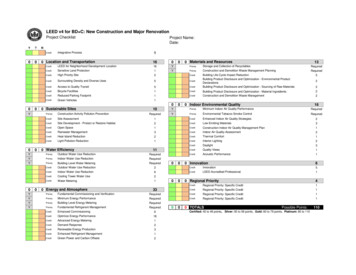
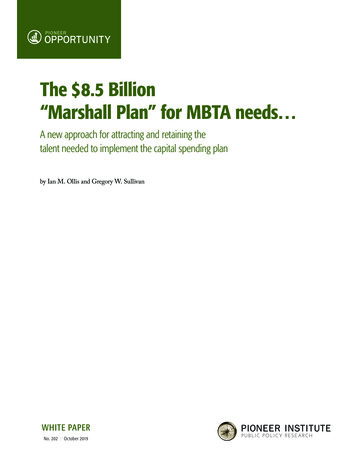


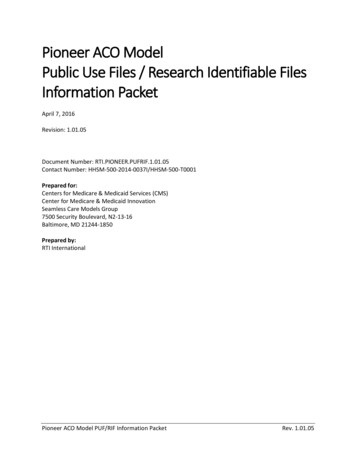
![Z W ] } v ] ( ( nce completed, W ] } v W l P ] v P t r õ W ] } v W l P .](/img/56/pioneer-new-client-welcome-2021.jpg)



